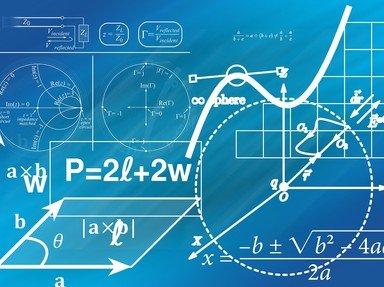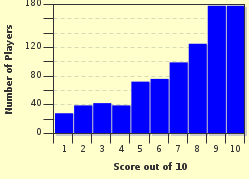Quiz Answer Key and Fun Facts
1. Square numbers can be expressed in the form of n^2, where n is any integer. Which of the following is NOT a square number?
2. Choose the WRONG statement.
3. Excluding 0 and 1, what is the smallest square number which is also a cube number?
4. The nth square numbers is also the sum of the first n ___ numbers.
5. Given two integers m and n, you can find the difference of the squares of these two numbers by using the identity m^2 - n^2 = (m + n)(m - n). So what is the difference between the square of 51 and 49? In other words, what is 51^2 - 49^2?
6. A square number only ends in certain digits, so it is possible to determine whether a number given is a square number or not. Which of the following is NOT a square number? (Hint: try to find out first what digits can a square number end in)
7. It may be tedious to find the square of a two-digit number because you have to perform a two-digit multiplication. However, for any two-digit number that ends in 5, there is a shorter and simpler way to compute its square. For example, you can calculate 25^2 = 625 easily by writing down the digits 25 first, then the digit precedes 25 is 2 x 3 = 6. The number 2 is from the first digit from the root 25, while the number 3 is obtained by adding 1 to 2, namely 2 + 1 = 3. Another example would be 45^2 = 2025, where the last two digits are 25. Then the digits precede 25 is 4 x 5 = 20. Now it's your turn. What is the square of 95?
8. Notice the following pattern:
1 x 1 = 1;
11 x 11 = 121;
111 x 111 = 12321
Now it's your turn. What is the square of 11111?
9. Given that the first few square numbers are 1, 4, 9, 16, 25 while the first few triangular numbers are 1, 3, 6, 10, 15. So what is the relationship between these two types of numbers?
10. Is it possible for the sum of two different square numbers to be another square number?
Source: Author
Matthew_07
This quiz was reviewed by FunTrivia editor
crisw before going online.
Any errors found in FunTrivia content are routinely corrected through our feedback system.

